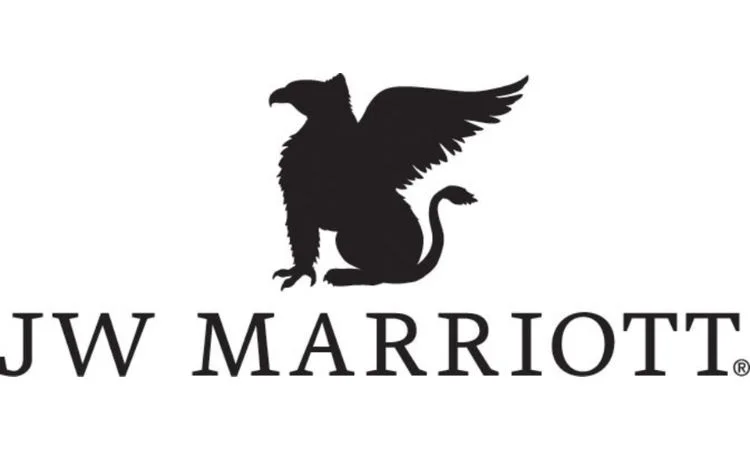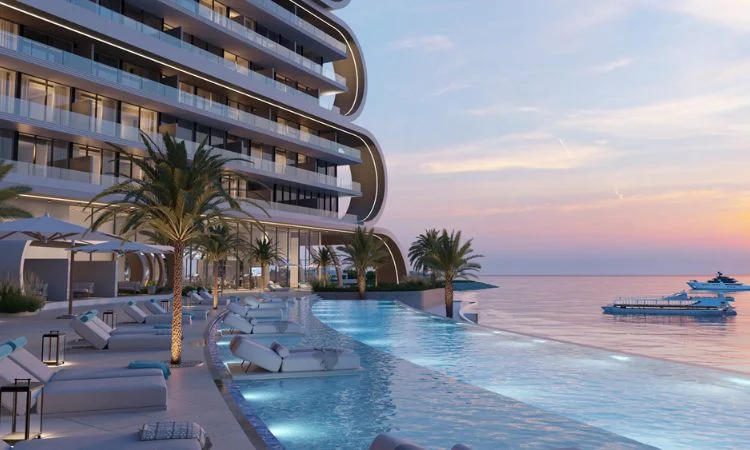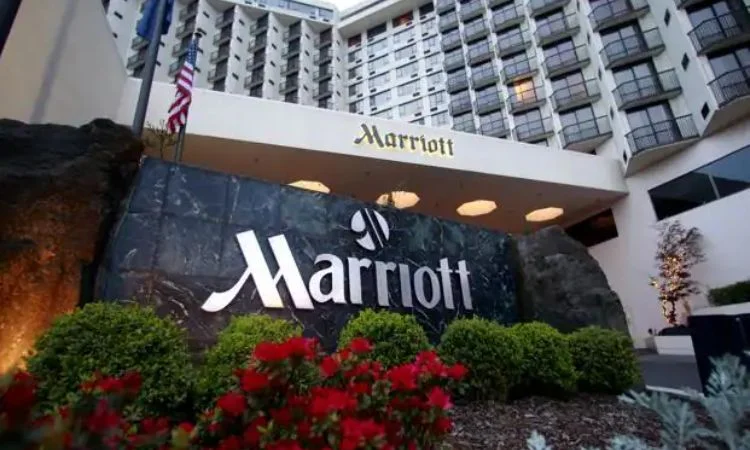The field of luxury hospitality isn’t easily saturated by many names that are no different from JW Marriott, a brand that is known to convey both prestige and quality all over the world. From luxury to comfort and quality service, JW hotels have acquired popularity in the field of luxury travel in the whole world. Even behind the glamour of the top-grossing brand is a narrative of humble origins, continuous determination, and a commitment to quality that has made JW Marriott a peak leader in the hotel industry.

Source: PR Newswire
About JW Marriott
JW Marriott is an American luxury hotel brand, which is a subsidiary of Marriott International.
The JW Marriott brand was established back in 1984 with the opening of the very first hotel in Washington, D.C as Marriott Corporation’s founder, J.W. Marriott. In 1989, Hong Kong was chosen as the Chinese launchpad for overseas initiatives. Europe and the Middle East started in 1993. In addition to the standard Marriott brand, which falls between Ritz-Carlton and the traditional Marriott and Renaissance brands.
Luxury experience: JW Marriott aims to be a brand that provides the premium hotel experience with spacious rooms, great service, and high-quality amenities such as spa centres, fitness centres, and swimming pools.
Global presence: All over the world, one can find JW Marriott hotels. For example, in the United States, mainland China and Thailand, as well as Mexico and Europe.
Early History – The Founder of Marriott International
John Willard Marriott (J.W. Marriott) was a remarkable person who was born on September 17, 1900, in Marriott Settlement, Utah, to a family of farmers. An early illustration of his business prowess and natural flair for entrepreneurship came when, as a young boy of about eight, he started the enterprise of selling donuts that he himself made in a pastry shop in a nearby town.
The start of Marriott’s journey into hospitality was in 1927, with the inception of a pint-sized nine-seat root beer stand. Giving a flyer to his customers after the business closing was the first step in his story. Hot Shoppes, the first successful chain restaurant he owned, was born from this. This success inspired Marriott to expand his newfound dream into the realm of hotels.
The first Marriott Hotel was opened in Arlington VA in 1957. Pursuing innovation and outstanding ideas, he developed interesting notions such as rooming or atriums hotels which considerably renewed the hotel industry. An accepting challenge head on and the ability to put in everything he had into the business soon made him a household brand. The fan base grew bigger with three calendar years.
JW Marriott: Business Model

Source:Hotel News ME
Instead, Marriott has a plan to not buy or tend hotels but a high profit earned and sustainable growth that rely on brand and customer loyalty. On the contrary, they no longer earn profits merely from their name and by organising operations of affiliate hotels.
Marriott collects rents from hotel owners, which gives them the right to use the Marriott brand and they are provided with technical assistance in how to manage the hotel. Marriott, for some hotels, assumes the role of casino hotel operator itself, handling the daily management task.
This mode of operation generates a revenue stream since vendors periodically bring renters the bills for paying the fee. That way the company is not so dependent on the ups and downs of tourism as well. As a result, it is more likely to remain strong both in periods of high and low travel demand.
Currently, Marriott generates continuous profits from its business operation, and quite little is applied on building it. Through it there is an increase of the profit relative to the fund it has put on investment. Marriott being able to hold the want for growth sees to it that it returns a large part of its funds to the shareholders, that is through buying back shares and paying dividends.
Marriott International is making changes to better serve bleisure travellers, who mix business and leisure on their trips. These travellers are increasingly popular, choosing to extend their stays to enjoy both work and fun activities.
But as travellers’ preferences change and more people look for combined business and leisure experiences, Marriott is ready to offer them tailored solutions and exciting experiences. They understand the needs of this diverse group and want to meet them.
JW Marriott’s : Marketing Strategies
In the world of hospitality, Marriott International, the leading global brand, implements an integrated marketing strategy to enable expansion and consolidation of the firm’s footprint worldwide. Be sure to consider the subtlety of Marriott’s approach. These refinements may not be present in the future; therefore, citing current sources is advised for exact pictures.

Source: Mint
Brand Positioning:
Marriott International’s brand positioning strategy centres on two core pillars: given budget and its advantages. Adopting this strategic approach the brand successfully addresses many types of traveller requirements, desires and preferences all the time, while at the same time it gives excellent value for the investment at the same time. At the heart of the approach is the belief that it is the key to delivering stunning holiday and leisure journeys embracing the principle of being number one in the travel community all over the world.
Marriott’s brand lineup is a proof and a testament to their commitment to bring entirely different unique experiences to their customers. Its main brand, Marriott Hotels, focuses on the “Achievement Guest ” group, those whose passions are improving in many different areas of their lives. Guests looking for experiences that boost their accomplishment feelings either intellectually or physically, find this tailor-made package particularly fascinating.
Marriott presents a range of high-end hotels as opposed to their competitors, featuring a branded and top notch experience. This objective is attained through creation of brand identities, which are different, and each portrays its own image together with service spirit. Either the The Ritz-Carlton luxury which lasts forever, or contemporary allure of the AC Hotels, each brand brings a well thought-out atmosphere customised according to the guest preferences.
With these principles at its core, Marriott International operates under a strong and ethically-driven corporate philosophy, which is based on high quality and personalised service, honesty, respect, diversity, and inclusion. Such core values are whole-heartedly integral to every operation of the company whether this is staff or guests. As a result it builds an environment that is of mutual respect and ethical behaviour.
Marriott’s Diversified Brand Portfolio Sets the Standard in Hospitality
Moreover, Marriott’s strategic approach is bolstered by its diversified brand portfolio, which serves to fortify its standing in the market. With a comprehensive array of 30 brands tailored to meet diverse preferences and financial considerations, Marriott ensures that it can accommodate the needs of every traveller.
From the timeless opulence of The Ritz-Carlton to the practicality and cosiness of Marriott Executive Apartments, each brand presents a distinct value proposition tailored to cater to specific segments of the guest demographic.
Loyalty program:
The Marriott Bonvoy loyalty program is a significant pillar in the company’s strategic marketing majority plan as well. By introducing a reward structure which is determined by the duration of stay and also a tier structure which comes with progressively advancing benefits in the form of longer stays, Marriott influences client’s repeat customers and turns them into long term loyalists.
Establishing Connections via Customization and Exclusivity:
Marriott Bonvoy supersedes the conventional points and perks systems used by other brands because of its custom excursions and sights program: Marriott Bonvoy Tours & Activities and its cooperation with its airliner networks. These individually crafted methods specifically cater the mood to each guest’s desired taste or choice. So, they instantly feel valued and appreciated. To conclude with, privileges of a high level, say extended checkout and free breakfast, are also a big assistance to the final experience that ultimately create a greater binding force between Marriott and its customers.
Strategic Alliance
Collaboration is one of the core things in strategic management directions of Marriott International. This strategic management method enabled the company to tighten its worldwide infrastructure and in return served its customers with one of the highest standards of client satisfaction. These alliances afford Marriott the following advantages:These alliances afford Marriott the following advantages:
Mores Reach and Various Investments’ Freezing
As a result of a major licensing agreement between Marriott and MGM Resort International, an operator of 17 leading resorts and 40 000 rooms located in the country’s principal cities, Marriott obtains the privilege to work on these properties. The development of such partnerships not only offers improved geographic reach for the company but also widens its portfolio to cover a more diverse group that satisfies their upscale hospitality needs.
Moreover, the Vinpearl JSC serves to optimise the better presence of Marriott in Vietnam by enabling guests to have access to a multitude of special travel destinations that belong only to that region.
Quality Factors of JW Marriott
Brand:
Marriott made its name by always giving really good places to stay and nice extras. Whether it’s fancy hotels like The Ritz-Carlton or more affordable ones like Marriott Courtyard, Marriott makes sure everyone gets top-notch service, no matter what they pay.
Branding is super important in the hotel business. If a hotel messes up even once, it can damage its reputation that it’s built over many years. In the hotel industry, where there are lots of choices for customers, it’s crucial to use branding strategies well to stay ahead. This could mean making it hard for new hotels to enter the market, making it tough for customers to switch to other hotels, and building a network of loyal customers.
Barriers to Entry
There’s only so much space for hotels in one area. Marriott makes the most of this by using it to their advantage. They set up deals that make it tough for others to build hotels there. These deals usually last for 20 years at first, but can be extended up to 50 years. This means Marriott can control a good spot for a long time and keep other hotels out.
Switching Costs
When a hotel signs a contract with Marriott, it becomes more difficult for the owner to switch to another company later on. This is because Marriott makes it expensive to switch.
One reason switching is costly is because the hotel would lose customers and money. If a hotel stops working with Marriott, it also loses access to Marriott’s reward program, which brings in a lot of bookings.
JW Marriott: Top Competitors
| Position | Hotel |
| 1 | Hilton |
| 2 | Hyatt |
| 3 | Ritz Carlton |
| 4 | Starwood Hotels |
| 5 | Shangri-La Hotels |
| 6 | Radisson Hotels |
| 7 | Oberoi Hotels |
| 8 | Taj Hotels |
Conclusion
In Conclusion, JW Marriott’s transformation from a local company to a global luxury brand serves as a striking example of staying resilient, fighting to be innovative, and maintaining superior customer service. The brand company was founded by the ambitious man Thoan John Willard Marriott in 1984. It has grown and expanded into a global symbol of high class travels, serving clients who are in search of a unique perspective.
JW Marriott’s success story begins and ends with its determination to create the best hospitality experience across the world, featuring unique and extraordinary services, luxurious rooms, and excellent facilities throughout its network of hotels. The company has built a successful strategic business model designed to develop consumer trust and lasting growth, which in the long run will solidify its status as an industry leader.














